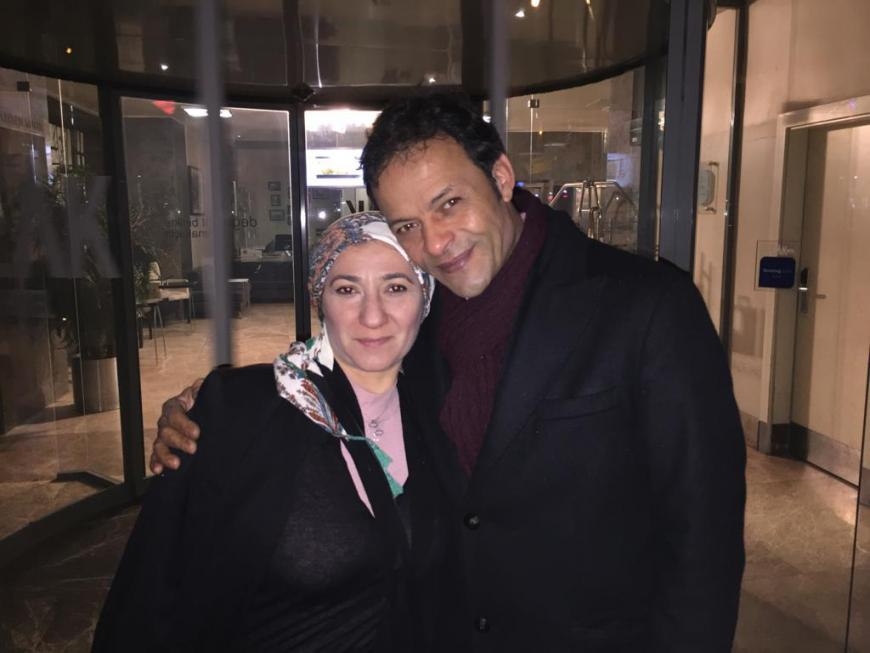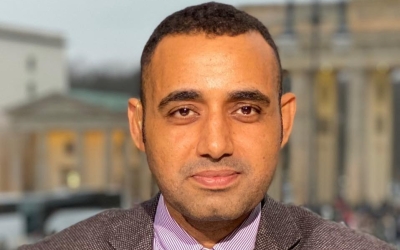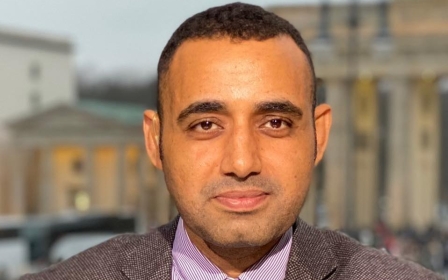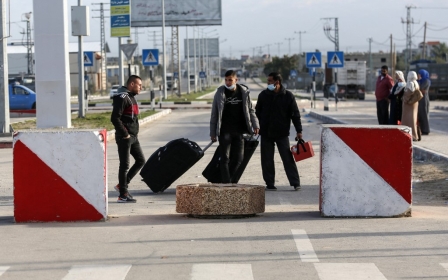'Punishing dissent': Egypt revokes citizenship of 2011 revolution activist

Egypt has revoked the nationality of an exiled activist in an apparent reprisal for her outspoken opposition to the government of President Abdel Fattah el-Sisi.
Ghada Naguib, 49, is a political activist who took part in the popular movement that culminated in the resignation of late autocratic leader Hosni Mubarak in 2011.
'How could they delete my affiliation with my home country simply at the stroke of a pen?'
- Ghada Naguib, Egyptian activist
On 24 December, a friend phoned the family, now living in exile in Turkey, telling them that the Official Gazette had published a decree stripping Naguib of her Egyptian nationality, citing Law No. 26/1975, which gives authorities the right to revoke citizenship without judicial review.
“I was in utter shock,” she told Middle East Eye.
“How could they delete my affiliation with my home country simply at the stroke of a pen?”
New MEE newsletter: Jerusalem Dispatch
Sign up to get the latest insights and analysis on Israel-Palestine, alongside Turkey Unpacked and other MEE newsletters
Egyptian law, as cited in the decree against Naguib, allows the prime minister to strip anyone of citizenship if they have lived abroad and are convicted of a felony linked to harming state security.
Naguib says she has no other nationality. Though it is illegal under international law to make someone stateless, Egypt is not a signatory to the relevant conventions.
Authorities claim Naguib is "originally Syrian". The activist says although her father is Syrian, she has never been to the country and does not hold Syrian citizenship.
Prior to the decision, Naguib was the subject of what she describes as a “despicable smear campaign” in state-owned Egyptian media, after she posted the image of a senior intelligence officer, Lieutenant Colonel Ahmed Shaaban, who is believed to wield significant power in running the country’s media.
Naguib accused the officer of being behind the disappearance of Doaa Khalifa, after the fellow activist posted a video accusing him of blackmail. Khalifa is a former member of the Tamarod movement that helped bring Sisi to power in 2013.
Naguib was also a Tamarod member, but turned against the movement when she discovered its links to the military.
“He had been a mysterious figure before I posted his image and social media accounts,” Naguib said.
The campaign against Naguib included allegations of extramarital relations and even the publishing of images of her youngest son, aged eight, claiming he was born to a different father.
'Shocking and dangerous precedent'
Human Rights Watch (HRW) on Thursday condemned the decision to revoke Naguib’s nationality, calling on the Egyptian government to “stop using the nationality issue as a weapon to silence political critics”.
“Egypt’s decision to revoke Ghada Naguib’s citizenship is a shocking and dangerous precedent,” said Joe Stork, HRW's deputy Middle East and North Africa director. “Egyptian authorities are stooping to a new low in punishing dissent.”
Naguib’s husband, Hisham Abdullah, is a well-known Egyptian actor, now working as a TV anchor on the opposition Al-Sharq channel based in Turkey.
On 19 December, Egyptian authorities detained five of Abdullah's relatives, including his nephew and four cousins on charges of “joining a terrorist group”.
The relatives were not politically active and were held in retaliation for Abdullah’s activities abroad, according to Naguib.
In the summer of 2018, HRW also documented the arrest of family members of Naguib and Abdullah over the couple’s activism.
Naguib and Abdallah were sentenced in absentia two years ago to five years in prison in a mass trial, on charges of “joining an illegal organisation” and “disseminating false news to undermine national security”. The case was based entirely on the testimony of officers.
The Sisi government, in office since 2014, has been accused by rights groups of overseeing the country's worst crackdown on dissent in its modern history.
Tens of thousands of critics, journalists and opposition activists are held in prisons, while many activists who voice criticism from abroad have complained that their families at home have been targeted to silence them.
Several opposition leaders and human rights defenders abroad have also accused the Egyptian government of refusing to renew their passports.
According to a statement by the liberal Ghad al-Thawra party, a copy of which was sent to MEE, the party’s leader Ayman Nour and Egyptian actor Amr Waked have been among those who were banned from renewing their passports in recent years.
Middle East Eye delivers independent and unrivalled coverage and analysis of the Middle East, North Africa and beyond. To learn more about republishing this content and the associated fees, please fill out this form. More about MEE can be found here.





